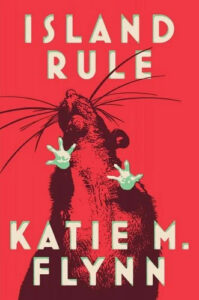Not coincidentally, I quit my great love, horror movies, right around the time I became a mom. Perhaps it’s because new terrors haunted me: SIDS and school shootings, poison in Halloween candy, toxins in the water, plastic in our bloodstream, creepy lingerers in Golden Gate Park, a planet on fire, a child poisoned, a child with no future, a child lost forever. That was enough horror for me at that point in my life.
Or maybe it’s because becoming a mom brought to my attention how many horror movies make moms into monsters. Moms are the ugly reason behind Jason and Norman Bates and Carrie. They’re the evil antagonists in Ma (2019), Mama (2013), and Mother’s Day (1980/2010). It’s easy to demonize mothers, to make them the villains, the origin stories behind killers, the lost souls who hit their breaking point, turn their torment on others. And sure they have power, but isn’t it convenient, always blaming mom?
Horror movies put a microscopic lens on our troubles, reflecting them back at us with heightened paranoia and terror. But some things aren’t all that exaggerated for the screen. In the horror world, as in ours, if you’re not a perfect mom, what are you? You must be a monster. As a new mother, I didn’t need the reminder, thank you. So, I gave up on horror for a time, turning my back on monsters. I told myself, hilariously, You’ll never be one of them.
But in the horror that was lockdown, we were all on the verge of monsterdom. I was a single mom alone with my kids, a classic horror setup, very cabin in the woods even if we lived in the city.
It was sweet, the way my kids wanted to sleep with me, but we were together all day. And at night? We were a pile of bodies, me in the middle, our limbs indistinguishable, breathing in each other’s hot exhales.
One night, unable to sleep, feeling very much confined, I slipped out of bed and felt an old, familiar urge, so I turned on the TV, found the first horror movie that didn’t look terrible, The Babadook (2014). In one of the opening scenes, a single mom, Amelia, is in bed with her young son, Samuel. He’s got a leg thrown over her body, a hand at her neck; he grinds his teeth audibly. She escapes to the edge of the bed, lying there uncomfortable and sleepless.
I understood her immediately. As a single mom, I have room for kids in my bed, but having room doesn’t mean I always have space. During an especially grabby hug, Amelia shouts at her son, “Don’t do that!” Too much, too close, the heat of a small human body that can shift from warm to oppressive in an instant.
My first taste of monsterdom came years earlier, well before lockdown, when my neurodivergent preschooler would struggle at school. In The Babadook Samuel faces similar troubles. A couple of stuffy administrators tell Amelia: “The boy has significant behavioral problems,” to which Amelia replies: “Please stop calling him the boy.” Raising a child on the spectrum, I have sat across from many teachers and administrators with similar attitudes: You’re on your own. I’d have to walk out of that office, past the parents who appeared smug at the periphery of my rage. Were they really smug, or was my vision distorted by my monstrosity? I’d spend hours pondering this question, whether I was imagining that smugness—a horror movie in the making.
Parenting shouldn’t be a solitary act, but when your child misbehaves publicly, there’s no one more judgmental than other parents. It’s easy to turn inward, to make your world smaller, to tread in shrinking circles, and isolation is one of the key ingredients to horror.
For a time, I gave in, not accepting my monstrosity so much as reveling in it. I gave myself weird haircuts and wore monster-sized clothing and stopped smiling so much, and as a result people stopped smiling back at me. I’d hear about family parties to which my kids and I didn’t receive invitations and think, Fine, I can be a monster in private.
Later in The Babadook, Samuel is uninvited to his cousin’s birthday party, a particular slight with an exquisite sting. He can’t go back to school, so Amelia and Samuel are alone in the house, listless until a mysterious book about a monster arrives. After reading it, Samuel warns Amelia not to let the monster in. But she does—she can’t help it—and the monster possesses her.
After lockdown, I no longer had the ability to perform perfect, even if I wanted to. I’d spent too much time alone, embracing my monsterdom, to play pretend. So, when we all reemerged, I started talking about my fears openly, my frustrations, my pain, cracking jokes at my own expense and laughing too loudly, identifying the moms who laughed with me and making them my friends.
Maybe it was lockdown, or perhaps it was just age, experience after experience settling on me, dust matter that I couldn’t wash away, but it occurred to me that I was neither perfect nor a monster; I was just a mom who was doing her best, and why wasn’t that enough?
Now I’ve let my great love, horror movies, back into my life, though I still yearn for more movies that show the complexity of motherhood. More than that, I want a world that asks for less of mothers and offers more. But in the meantime, my neurodivergent child has become a teen, and she’s doing great. Great by a standard we’ve set, her and I. Other parents might think differently but that’s not my concern. I’m no longer shaken by their opinions about my kids or my parenting. The monster inside me sleeps, for now. But she’s there, always, if I need to call upon her.
***


















